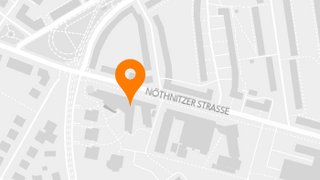Christoph Bruder
University of Basel, CH
Andreas Nunnenkamp
University of Vienna, AT
Christopher Wächtler
ICMM-CSIC Madrid, ES

Limit Cycles and Synchronization Go Quantum
International Workshop
30 June - 2 July 2025
Synchronization -- either to an external drive or among a collection
of self-oscillating systems -- emerges in an impressively vast variety
of seemingly unrelated subjects, settings, and situations.
Since we live in a quantum world, it is natural to wonder as to how
synchronization is modified if the degrees of freedom that synchronize
have to be described by quantum mechanics. After first pioneering
attempts to define and explore quantum aspects of synchronization for
the kicked rotator and in stochastic resonance, experimental progress
in optomechanics triggered a number of theoretical investigations of
synchronization in systems of coupled quantum limit-cycle oscillators.
Some of the questions we hope to actively discuss during the workshop
include: Is strict synchronization (in the sense of a transition)
possible in the quantum case? How can quantum synchronization be
quantified and measured, given that quantum limit-cycle oscillators
are inherently subject to quantum noise and the notion of a quantum
phase is difficult to define? Are there quantum synchronization
phenomena that cannot be described by a classical model with added
noise? What is the interplay between so-called dynamical symmetries
and synchronization? Can (many-body) limit cycles arising from
non-reciprocal interactions be synchronized? Does quantum
synchronization offer new resources for sensing applications?
The objective of this workshop is to bring together
researchers from different backgrounds - theory and experiment,
quantum nonlinear dynamics, atomic physics, and condensed matter - to
review recent advances and to identify promising new directions of
quantum synchronization and limit-cycles in driven dissipative quantum
many-body systems, their connection to (quantum) phase transitions,
and to provide fruitful ground for exciting new applications.
Topics include
- Synchronization and its characterization in the quantum regime
- Self-sustained oscillations in open many-body quantum systems
- Non-reciprocal interactions and non-reciprocal phase transitions
- Dynamical symmetries and quantum synchronization
- Towards experimental realizations of quantum synchronization
- Applications of quantum limit cycles and quantum synchronization
Perspectives from and links to other fields
Confirmed invited speakers
Victor Bastidas (JP)
Matteo Brunelli (FR)
Berislav Buča (DN)
Andy Chia (SG)
Nir Davidson (IL)
Tobias Donner (CH)
Rosario Fazio (IT)
Michel Fruchart (FR)
Gian Luca Giorgi (ES)
Jonathan Home (CH)
Yuzuru Kato (JP)
Igor Lesanovsky (DE)
Ron Lifshitz (IL)
Eric Lutz (DE)
Florian Marquardt (DE)
Sai Vinjanampathy (IN)
Oded Zilberberg (DE)


